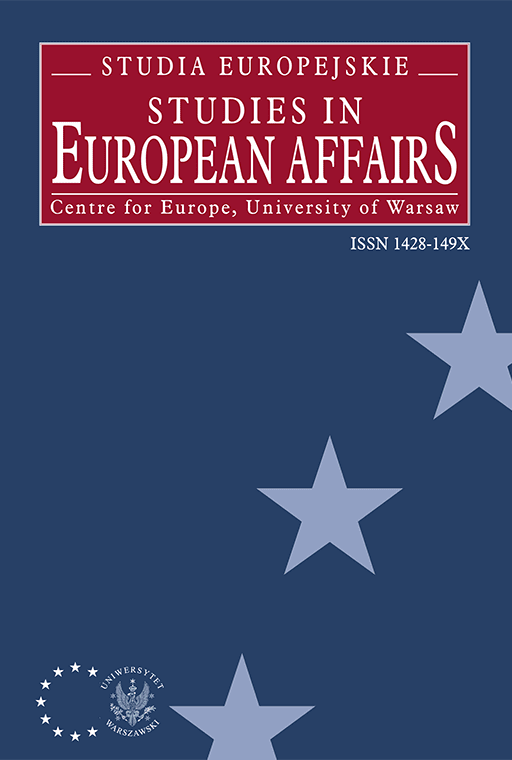
ISSUE: 4/2007
- Volume 44
- Number 4
- 2007
Subscribe NEWSLETTER
Studia Europejskie –
Studies in European Affairs
ISSN: 1428-149X
e-ISSN: 2719-3780
License
Articles published in the journal are under a Creative Commons Attribution – Non Commercial – No Derivatives 4.0 International License
Przekazywanie skazanych w Unii Europejskiej:model sui generis czy twórcze rozwinięcie tradycyjnego systemu?
Transfer of prisoners in the European Union: sui generis model or a creative development of a traditional system?
Abstract
The Council of the European Union is about to adopt a new Framework Decision on application of the principle of mutual recognition to judgments in criminal matters imposing custodial sentences or measures involving deprivation of liberty for the purpose of their enforcement in the EU. The author examines its provisions and solutions in the light of fundamental principles, ideas and goals underlying prisoner transfer between States. The analysis starts with a premise that transfer of prisoners is a form (modality) of international cooperation in criminal matters. The existing network of international instruments establishing this form of cooperation has predominantly regional nature. The author concludes that reliance on purely formal aspect, such as prisoner’s nationality and/or passport, runs counter the growing trend towards developing and promoting a different idea, that of “European nationality”, founded upon the freedom of movement of people across EU. Such a strong emphasis on nationality in the proposed Framework Decision seems inconsistent with the rationale behind the European Arrest Warrant where this concept was diminished and treated as old-fashioned and no longer relevant. Traditionally, it has been commonly assumed that prisoner transfer instruments are predominantly humanitarian in nature. Therefore, if a prisoner transfer scheme is not meant to serve the convenience of administrative authorities only, the offender’s consent must be required. A sentenced person should be the ultimate judge as to whether to transfer or not. Undoubtedly, his/her consent is of paramount importance. By rejecting the consent, the humanitarian and rehabilitation considerations have been lost in the process.
Language: Polish
Pages: 59-80
How to Cite:
Harvard
Płachta, M. (2007) "Przekazywanie skazanych w Unii Europejskiej:model sui generis czy twórcze rozwinięcie tradycyjnego systemu?". Studia Europejskie – Studies in European Affairs, 4/2007, pp. 59-80.